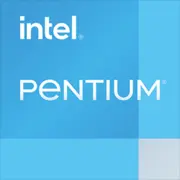Intel Pentium G2030

インテル ペンティウム G2030 は2025年に購入する価値があるのか?:10年前のバジェットプロセッサー
主な仕様:要求の少ないタスクに適した控えめな性能
インテル ペンティウム G2030は2013年に発売され、アイビーブリッジアーキテクチャ(第3世代Core)に属し、22nmプロセスで製造されています。これは、ハイパースレッディングをサポートしない2コアのチップで(スレッドは2つ)、基本クロック周波数は3.0GHz、L3キャッシュは3MBです。TDPは55Wであり、その時代の中で非常に電力効率の良いソリューションの一つでした。
現代基準による性能は控えめです:
- Geekbench 6 シングルコア:490;
- Geekbench 6 マルチコア:787。
比較のために、最新のバジェットインテルセレロン G6900(2023年)は約1200/2300ポイントを獲得します。しかし、G2030は依然として低消費電力と安定性のおかげで基本的なタスクには十分です。
主な特長:
- SSE4.1/4.2、AES-NI命令に対応;
- インテル HD グラフィックス(6実行ユニット、1050 MHz)を統合;
- 限定的なオーバークロック:倍率はロックされていますが、互換性のあるマザーボードでBCLK経由の小さなブーストが可能です。
対応マザーボード:レアアイテムを探す
このプロセッサはLGA1155ソケットを使用しており、すでに製造中止となっています。適合するチップセット:
- H61(基本機能、USB 3.0なし);
- B75/H77(SATA IIIとUSB 3.0に対応);
- Z75/Z77(オーバークロックと追加ポート)。
モデルの例:
- ASUS P8B75-M;
- Gigabyte GA-H77-DS3H;
- MSI Z77A-G43。
重要:
- 新しいマザーボードは2014〜2015年から製造されていません。2025年には、中古市場や残り物を扱う販売者から30〜50ドル(保証なし)で見つけることができるでしょう。
- 購入時はBIOSバージョンを確認してください。一部のマザーボードはアイビーブリッジと動作させるために更新が必要です。
対応メモリ:DDR3は歴史的アーティファクト
ペンティウム G2030はDDR3-1333/1600 MHz のデュアルチャネルモードのみで動作します。最大容量は理論上32GBですが、実際にはほとんどのマザーボードが16〜24GBに制限されています。
特徴:
- DDR4/DDR5のサポートなし — これはアップグレード時に重要です;
- 快適に作業するためには8GB(2×4GB)が十分です。例:キングストン ハイパークス フューリー DDR3-1600(8GB)は約25〜30ドル(新規)で販売されています。
電源ユニットの推奨:コストを最小限に
TDPが55Wで、統合グラフィックスが低消費であることを考慮すると、G2030ベースのシステムには300〜400Wの電源ユニットがあれば十分です。しかし、ディスクリートグラフィックスカード(例えばGTX 1650)を搭載する予定があるなら、450〜500Wを選んでください。
例:
- Be Quiet! System Power 10 450W($45) — 静かで信頼性の高い選択肢;
- EVGA 500 BR($40) — 80プラスブロンズ認証のバジェットソリューション。
アドバイス:不明なブランドの古い電源ユニットを使用しないでください。その部品(例:コンデンサー)が劣化する可能性があり、他の部品に危険を及ぼす可能性があります。
長所と短所:価格と性能のバランス
利点:
1. エネルギー効率:パッシブ冷却やミニPCの構築に最適です。
2. 低価格:新しいプロセッサ(見つけられれば)は$40〜60です。
3. 信頼性:過熱がなければ、寿命はほぼ無限です。
欠点:
1. 古いアーキテクチャ:AVX2、PCIe 3.0(2.0のみ)、DirectX 12をサポートしていません。
2. 弱いマルチスレッド性能:2コアでは動画編集やストリーミングに不十分です。
3. 互換性の限界:新しい部品の調達が難しい。
使用シナリオ:G2030が依然として役立つ場所
1. オフィスタスク:文書作成、ブラウザ(最大10タブ)、ビデオ会議。
2. マルチメディア:フルHDビデオ視聴(HDMI経由で4Kはサポートされていません)、音楽、ライトroom 5レベルのフォトエディター。
3. レトロゲーム:2015年までのゲーム(例:Skyrim、GTA Vの低設定)やインディプロジェクト(Stardew Valley、Hollow Knight)。
4. ホームサーバー:OpenMediaVaultベースのNASまたはシンプルなファイルホスティング。
実際の体験:ブラジルのユーザーはG2030を使用してKodiと120GBのSSDを搭載したメディアセンターを組み立てました。システムはピーク時に100W未満を消費し、静音で動作します。
競合との比較:バジェットの戦い
1. AMD Athlon X4 750K(2013):
- 4コア、4スレッド;
- Geekbench 6 マルチコア:~900;
- 欠点:TDP 100W、統合グラフィックスなし。
- 価格:$35〜50(中古)。
2. インテル Core i3-3220:
- 2コア + ハイパースレッディング;
- Geekbench 6 マルチコア:~820;
- 利点:マルチスレッドタスクに優れています。
結論:G2030はエネルギー効率で勝りますが、マルチタスク性能では負けます。
ビルドに関する実用的なアドバイス
1. SSD必須:安価なキングストン A400(240GB、$20)でもHDDの「ボトルネック」を排除します。
2. グラフィックスカード:追加電源なしのモデルを選んでください(GTX 1050 Ti、RX 560)。
3. 冷却:標準クーラーで十分ですが、静音性を考慮してArctic Alpine 12($15)を取り付けると良いでしょう。
4. BIOS:OSをインストールする前にマザーボードのファームウェアを更新してください。
ビルド例(グラフィックスカードなし):
- プロセッサ:G2030($50);
- マザーボード:ASUS P8H61-M($40);
- メモリ:8GB DDR3($25);
- SSD:240GB($20);
- 電源ユニット:400W($45);
- ケース:ミニタワー($30)。
合計:$210。
最終結論:2025年にペンティウム G2030をどのような人に推奨するか
このプロセッサは次の3つのケースで検討する価値があります:
1. 超バジェットビルド:オフィスや学習のため、コストが最低限重要な場合。
2. 古いPCのアップグレード:既にLGA1155マザーボードとDDR3メモリを持っている場合。
3. 実験的プロジェクト:レトロコンピュータ、メディアセンター、またはPCアーキテクチャを学ぶための学習スタンド。
代替案:もし100〜150ドルの予算がある場合、中古のCore i5-3470や新しいインテル N100(Alder Lake-N)プロセッサに注目してみてください。これらは同様のTDPで3〜4倍の性能を提供します。
ペンティウム G2030は古臭いですが生き残っているチップであり、リリースから12年経った今でも、インテルの技術がニッチなシナリオで役立つことを証明しています。
基本
CPUの仕様
メモリ仕様
GPUの仕様
その他
ベンチマーク
他のCPUとの比較
ソーシャルメディアで共有する
または当サイトへのリンクを追加
<a href="https://cputronic.com/ja/cpu/intel-pentium-g2030" target="_blank">Intel Pentium G2030</a>